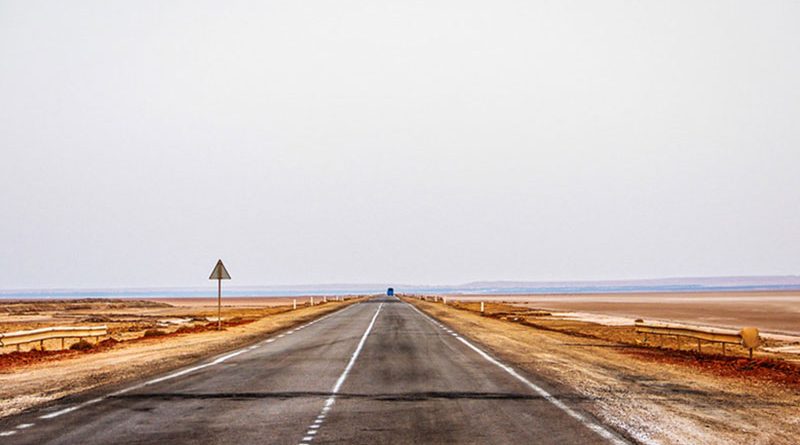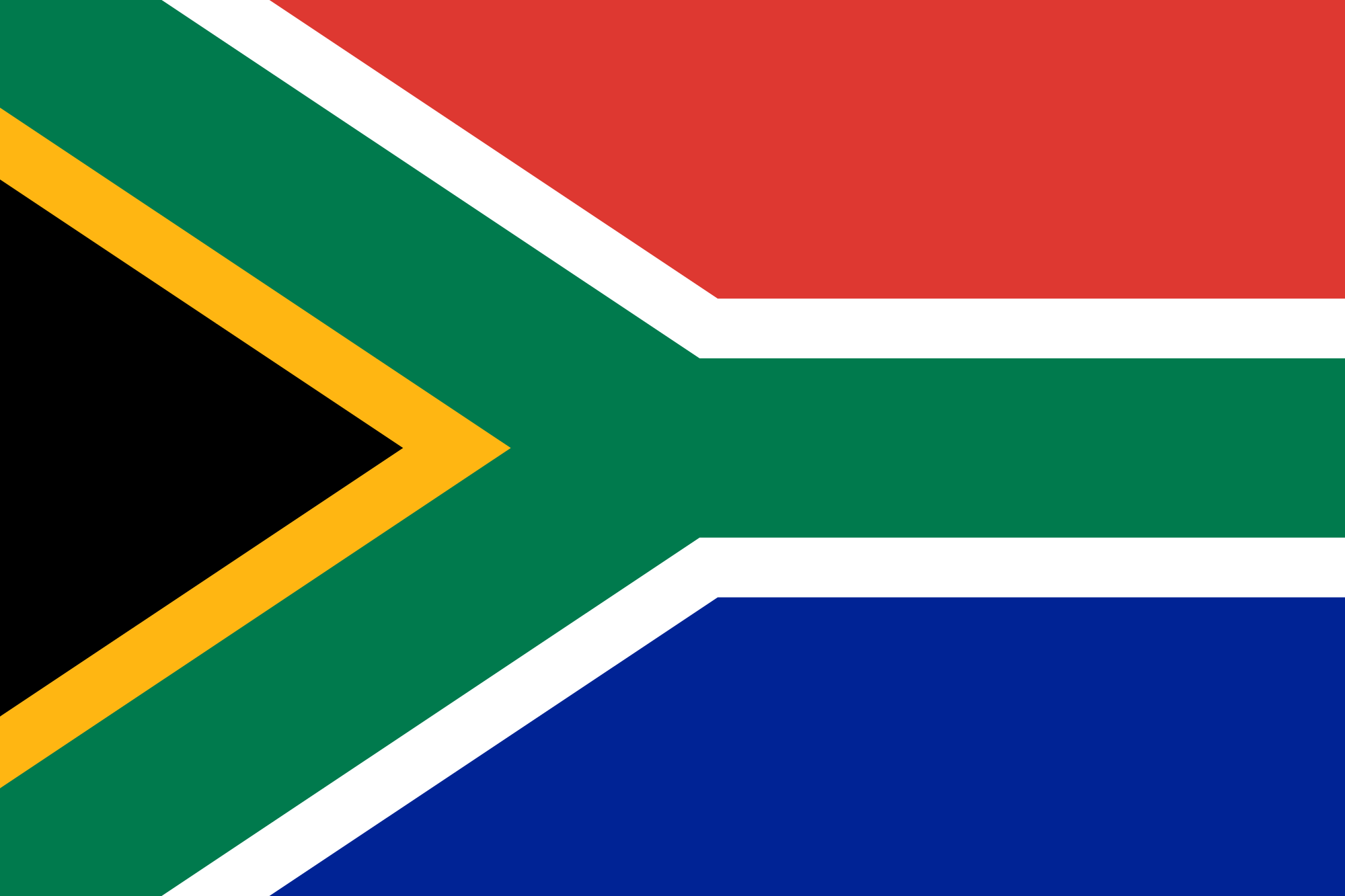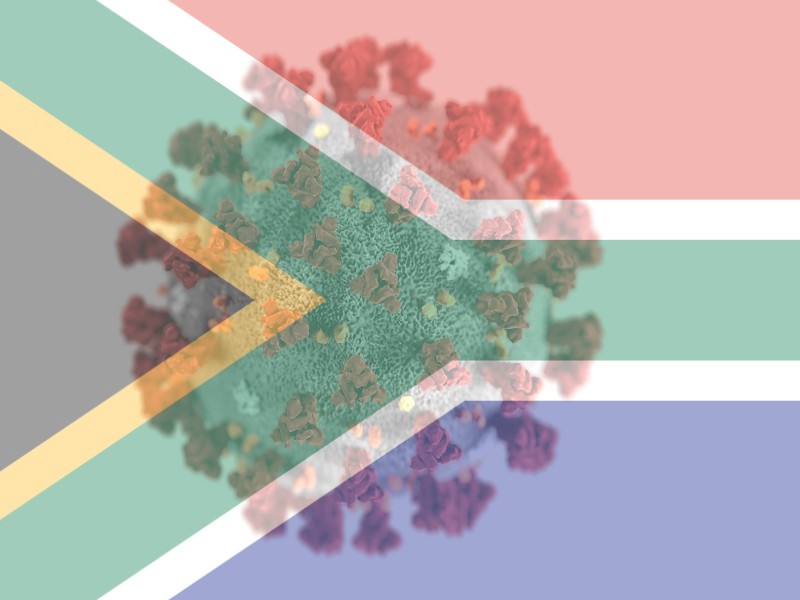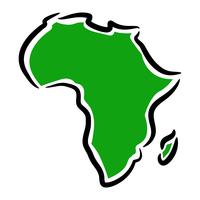South African President Cyril Ramaphosa has announced the lifting of certain coronavirus-restrictions, including relaxation on inter-provincial travel, sale of alcohol and larger public gatherings, as the country recorded a dip in new COVID-19 cases.
In an address to the nation on Sunday evening, Ramaphosa said South Africa, with immediate effect, will move to Level 3 from the current Level 4 of the five-level lockdown strategy.
He said the Level 4 restrictions, which have been in place for a month now, were being lifted as there was a reduction in new infections and deaths in the third wave of the pandemic. He said some restrictions would still remain in place as fears persist regarding the highly transmissible delta variant.
As part of Level III lockdown, a curfew will remain in place from 10 pm to 4 am and funeral services will still be restricted to a maximum of 50 people with strict protocols in place.
Indoor venues can cater for a maximum of 50 people at a time or for only 50 per cent of their capacity if they are smaller, while events outdoor may not have more than 100 people attending. This includes religious, political and social gatherings.
Schools will also reopen nationwide on Monday after a month-long break.
Ramaphosa said the sale of alcohol would be allowed from Monday to Thursday between 10 am and 6 pm.
Non-essential businesses such as restaurants, taverns, bars and fitness centres, which had to close their doors during the Level 4 restrictions, may now remain open until 9 pm.
"The latest figures suggest that we have largely passed the peak of the third wave of infections, although there are areas in the country where we still need to be concerned because the rates of infection have not yet shown signs of decline.
"The measures that we put in place for the past 28 days, alongside the continued adherence of South Africans to basic health precautions, have been effective in reducing the rate of infection," Ramaphosa said.
But he added that while infections in the economic hub of Gauteng province fell, daily new infections in the Western Cape, Eastern Cape and KwaZulu-Natal provinces continue to rise.
"In all these cases, infections are being driven by the Delta variant (first detected in India), which as we said before is far more transmissible than previous variants," Ramaphosa said.
The president announced a stepped up vaccination campaign to address the pandemic.
"As we have always said, our most effective weapon in the fight against COVID-19 is an effective and comprehensive vaccination programme. In the last few weeks, our vaccination campaign has made huge strides.
"We are now administering more than 240,000 vaccines every week day. A month ago, this figure stood at around 100,000 vaccines per weekday. As a result, we have now administered more than 6.3 million vaccines, with over 10 per cent of our population having received a vaccine dose," Ramaphosa said, adding that in the coming weeks the number of vaccination centres would increase and they would be operating on weekends as well.
"We will now allow people between the ages of 18 and 34 to be vaccinated from the 1st of September 2021. This will be in addition to the age groups that are currently eligible, which is everyone over 35 years of age," the president said, pointing at the increased procurement of doses.
"Within the next two to three months, we are scheduled to receive around 31 million additional doses from Pfizer and Johnson & Johnson. This supply pipeline means that there will be sufficient vaccine doses available for the rest of the year," he said.
Shortly before Ramaphosa's address, the National Institute for Communicable Diseases announced that 9,718 new COVID-19 cases had been recorded in the preceding 24 hours, with 287 new COVID-19 related deaths.
Source - Business Standard
(Reuters) - Five South Africa rugby sevens players who were close contacts of coach Neil Powell will not stay in the Tokyo 2020 Olympic Village, officials said on Thursday, meaning more disruption to the preparations of one of the gold medal contenders.
Powell is self-isolating after testing positive for COVID-19 on arrival in Japan last week and will miss the men’s sevens competition that runs from Monday to Wednesday next week, offering support via video link only.
The five unnamed players, who travelled with Powell from Tokyo to the training base in Kagoshima last week, have been barred from the Olympic Village over fears they may be incubating the virus.
They will stay at a separate hotel on the team’s return to Tokyo on Friday, though they can train with the squad at the weekend.
“There is not much we can do about that, so we will have to make it work,” assistant coach Renfred Dazel said in a statement from South African Rugby on Thursday.
“We have been adapting since we arrived and it is not easy, but credit to everyone who keeps smiles on their faces and working hard.”
South Africa are among the favourites to win a gold medal after collecting bronze in Rio de Janeiro five years ago. Dazel was also part of the technical team then so is confident there is the know-how to be successful.
“I am fortunate to have worked with Neil for many seasons now, including at the previous Olympics in Rio. Add the fact that Neil is still in contact with us virtually, so I am quite confident that we can get the best results.
“We have a seven-hour gap between matches, and we will get together on a call to sort out any problems or tactics if needed. We are lucky with a strong leadership group in the squad as well, and all of us are still on the same ticket and drive.
“We have a clear focus, and the guys are really working hard and at good intensity and that is what we needed.”
South Africa open their campaign against Ireland on Monday, and will also face Kenya and United States in Pool C.
Source - Reuters
Massive desolation continues to engulf populations of at least 10 African countries for a fifth week running, in the wake of poor medical responses and a biting oxygen shortage.
WHO regional director for Africa Matshidiso Moeti said that hospital admissions for severely ill Covid-19 patients had reached unprecedented levels in about 10 countries; at least six countries were facing shortages in intensive care unit beds and medical oxygen even though their supply had increased to 50 percent higher than at the same time in 2020, leading to preventable deaths.
In just one week, Covid-19 related deaths had surged by 43 percent driven by a lack of proper therapeutics and oxygen. Deaths increased to 6,273 in the week ending July 11 from 4,384 deaths the previous week.
Uganda, Zambia, Namibia, South Africa and Tunisia accounted for 83 percent of the new deaths recorded in the past week in the backdrop of what Dr Moeti described as a consistent upward trend in countries with sharp increases particularly in Algeria, Malawi, Senegal and Zimbabwe.
Concern is also growing that the violence in South Africa will hamper social distancing measures as well as vaccination exercises. The continent’s case fatality rate, which is the proportion of deaths among confirmed cases, currently stands at 2.6 percent against the global average of 2.2 percent.
Covid-19 cases have risen for eight straight weeks, topping six million on July 13. Over the past month, Africa recorded an additional one million cases.
According to Dr Moeti, this is the shortest time it’s taken so far to add one million cases. Comparatively, before May, it took around three months to move from four million to five million cases. This is the fastest surge the continent has seen.
WHO said that in six countries facing a resurgence, just 27 percent of the medical oxygen needed was available.
“Deaths have climbed steeply for the past five weeks. This is a clear warning sign that hospitals in the most impacted countries are reaching a breaking point,” said Dr Moeti adding, “The number one priority for African countries is boosting oxygen production to give critically ill patients a fighting chance.”
WHO said it had found insufficient quantity, disrepair or poor maintenance of oxygen production plants as well as challenges in distribution, scarcity of cylinders, personnel or technical skills as the main barriers to adequate medical oxygen supply in Africa.
The rise in cases comes amid inadequate vaccine supplies. The continent has vaccinated 52 million people since the start of the vaccine rollout in March this year, accounting for just 1.6 percent of the 3.5 billion people vaccinated worldwide. Only 18 million people in Africa are fully vaccinated, representing 1.5 percent of the continent’s population compared with over 50 percent in several high-income countries.
Around 190 million extra Covid-19 vaccine doses will be needed to fully vaccinate 10 percent of Africa's population by September, with around 750 million more doses needed to fully vaccinate 30 percent by the end of the year.
Source - The EastAfrican




